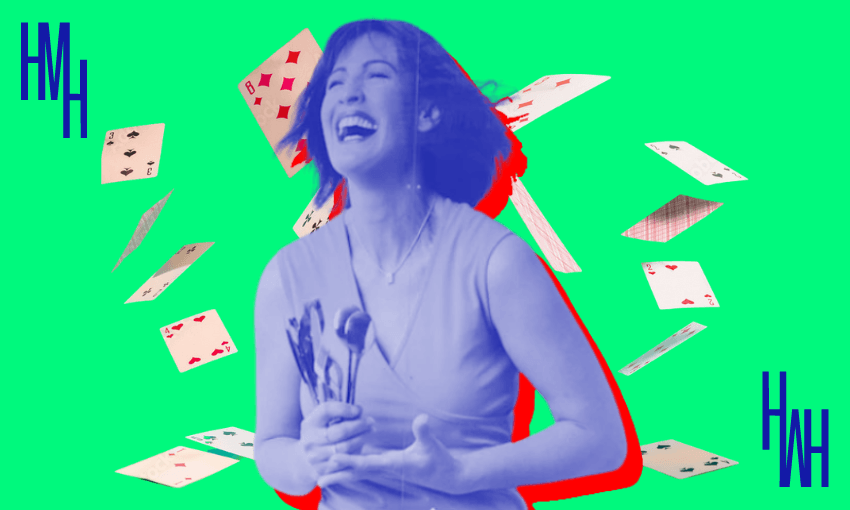Fullers360 claims to be the first transport and tourism company to provide period products to staff and customers. How are they the first?
All menstruators know the feeling. The little cramp. The suspicious moisture. The regret that you wore your coolest, thin cotton pants. Shoulda known, but didn’t. A period’s arrival in public – at work, or in transit somewhere – often is followed by a desperate and unfruitful search under fluorescent lights. At best, one might find a coin-operated pad dispenser, and have a forgotten coin in the depths of their pocket. The most organised, well-trained Type-As may be equipped with “just in case” products in their bag. But for the rest of us, risky, ad-hoc arrangements must be put together and worried about for the rest of the day.
Natasha Colville, crew development manager at Auckland-based ferry company Fullers360, knows the feeling. “There are days when you’re on the ferry for your shift without any access to a nearby pharmacy or supermarket; or you may be stationed at a DoC-protected island and there’s nowhere at all to get what you need.” But Fullers360 has this week partnered with Dignity NZ, a social enterprise aiming to deliver period equity. Using Dignity’s “buy-one, give-one” model, Fullers360 are providing free period products to its staff and passengers while supporting Dignity to give the equivalent number of products to people experiencing period poverty. Gone is the anxiety of an unexpected bloody arrival on the waves of the Hauraki Gulf for these crew.
In June 2021, the New Zealand government acknowledged the disadvantages for the 700,000 people living in period poverty and started an opt-in initiative for schools and kura to receive free period products for students, following the likes of Wales, Sri Lanka, Scotland and England. This saves students mid-emergency through bathroom sanitary product dispensers, and alleviates period poverty by providing bulk supplies. But bloody surprises and period poverty don’t only affect students. As a result of financial insecurity brought on by the Covid-19 pandemic, Dignity has seen “a huge increase in demand for period products”, says general manager Anika Speedy. To date they have gifted more than 546,780 period products to those in need.
Fullers360’s proud claim to be the “first transport and tourism operator to provide free period care to customers and employees” is clearly intending to stir reverence but instead stirs concern. Has no other transport or tourism agency given out a free tampon before?
Women had to wait almost 50 years longer than men for a public toilet in the Auckland CBD. The first men’s public toilet was built in 1863, while the men’s and women’s toilet at Grafton Bridge wasn’t built until 1910. Gender-diverse people waited longer still – until 1974 – for unisex public facilities. Now, in most cubicles, facilities lack products as essential as toilet paper or hand soap, let alone a lifesaving pad or tampon.
I call Fullers360’s competitor SeaLink, also zipping around the Hauraki Gulf, and am told there is no similar initiative being put in place there, though the staff member (who sounds like a menstruator) does think it’s “really cool”. I’m diverted to an email address but it is generic and, I assume, flooded with complaints about the lack of period products in the bathrooms. Under the “toilets” section on the facilities webpage, I am told only that they are located near the passenger lounge, and that a “J Hannah” considered the boat to be “clean”. Digging further, I find myself on a page dedicated to the flagship of SeaLink’s fleet, Seacat, also known as Big Red. Its listed onboard facilities include Sky TV, wifi, power outlets and a licensed bar. But no period products. Big Red has a passenger capacity of 400 and apparently none will have their period.
I then call AT Transport’s senior media specialist who is also listed as the contact for “facilities”, but she does not answer my call. I have paid so many parking fines that I feel miffed at the level of service. I email her for good measure, and 30 minutes later a chirpy email informs me the provision of period products is “something AT has been exploring with a supplier”. I’m not entirely sure how much there is to explore, and I consider sending her the succinct Family Planning page “period products”. I can’t help but notice her email signature includes another title, “strategic communications”, which feels slippery, evasive, and eager to appear to please.
Thinking bigger, beyond Tāmaki Makaurau and into the nation, I explore “The Great Journeys of New Zealand”, a train track Medusa owned by KiwiRail where the Interislander ferry joins the Northern Explorer, Coastal Pacific and TransAlpine scenic trains. These are vehicles, I think, where one is supposed to travel slowly, spend time, gaze out the window. The website invites me to “sit back and relax for the whole journey”. It is designed elegantly, which means it’s expensive. I read there are “plenty” of toilets, but seemingly even more cafes and bars. One phone line gives me a phone number for another line, where a faraway voice answers my one question with “we don’t have any plans for that” and follows up with another diversion to an email address.
I am reluctant to congratulate or champion Fullers360 because it is 2022 and period products should be free and easily accessible in all cramped, badly lit cubicles. But they aren’t, which sucks because sometimes I would like to wear my coolest, thin cotton pants without fear.
Gabi Lardies is a cadet in the Next Page cadetship programme, public interest journalism funded through NZ On Air. She will be working with The Spinoff for four weeks before working with Metro, North & South, New Zealand Geographic and Pantograph Punch.



